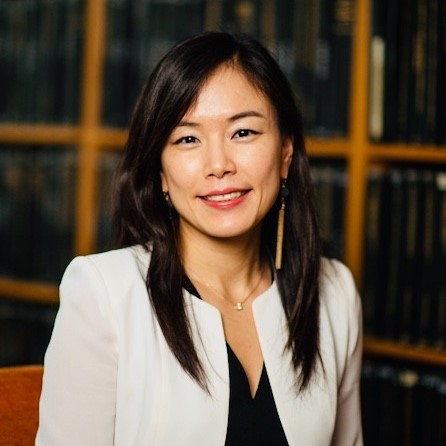Speaker Series: Jaeeun Kim

How does immigration law shape migrant subjectivities? This article examines whether and how migrants’ engagement with the asylum institution brings about changes in their religious practices and self-understandings, drawing on ethnographic research among ethnic Korean migrants from mainland China applying for asylum in the U.S. as Christians fearing persecution. Through a critical engagement with the interdisciplinary scholarship on migration and waiting and sociology of future, Jaeeun Kim develops a theory of migrants’ future-making and aspiration formation to unpack the black box through which immigration law shapes migrant subjectivities in variable and dynamic ways. Kim pays attention to the interplay between immigration law, non-state intermediaries, and transnational social fields, especially how the interplay shapes migrants’ approach toward the legally sanctioned status passage as well as their future imagination and aspirational horizon. She argues that the production and coordination of competing futures and aspirations in the context of involuntary waiting should be central to our analysis of immigration law and migrant subjectivities. This article further contributes to the literatures on therapeutic governance and legal consciousness by complementing a Foucauldian conceptualization of governance with a robust theory of future-oriented action and offering fruitful ways to study temporality in relation to law’s hegemony and inequality.
To register for the event, or to access the related paper draft, contact Sophie Kofman at skofman@abfn.org.
__________________________________________________________________________________________________________________________________________________________
Jaeeun Kim is the Korea Foundation Endowed Associate Professor of Sociology and Professor of Law, by courtesy, at the University of Michigan. She is a political sociologist and law and society scholar interested in questions of human mobility, inequality, power, and agency. She seeks to develop a relational, processual, and agentic account of categorization and identification, particularly in contexts in which such practices have significant implications for inequality at local, national, and global levels. Her research takes a transnational and global perspective, and systematically considers sending and transit contexts in studying international migration by adopting a multi-sited approach to research.
Kim’s work, generously supported by the Social Science Research Council, the Wenner-Gren Foundation, the American Council of Learned Societies, and the Academy of Korean Studies, has been published in journals in sociological theory, law and society, race/ethnicity/migration, and historical sociology. Her first monograph, based on her award-winning dissertation (2013 Theda Skocpol Dissertation Award from the American Sociological Association), was published at Stanford University Press in 2016 and won three book prizes and one honorable mention from the American Sociological Association, the Social Science History Association, and the Association for Asian Studies. Kim’s recent article published in Sociological Theory, titled “Migration-Facilitating Capital: A Bourdieusian Theory of International Migration,” also received the 2019 Theory Prize from the ASA Theory Section.
Kim is currently working on her second book project about the asylum-seeking of unauthorized migrants on religious grounds, based on her ongoing multi-sited ethnographic fieldwork. Before joining the University of Michigan, she received her Ph.D. degree from UCLA, was a postdoctoral fellow at Princeton and Stanford, and taught at George Mason University for a year. She was a member of the Institute for Advanced Study (School of Social Science) in Princeton during 2016–2017, and a fellow at Wissenschaftskolleg zu Berllin (Institute for Advanced Study in Berlin) during 2020–2021.

